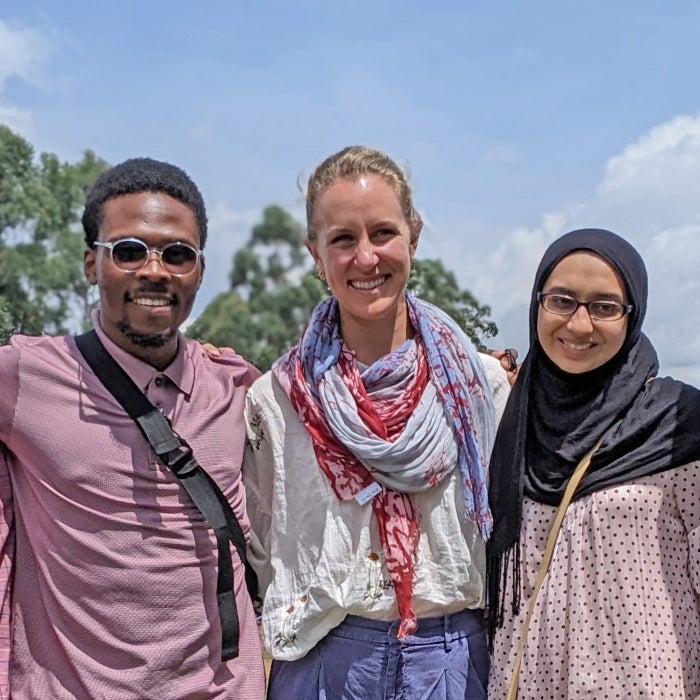Main navigation

Global Health Program
A collaboration between Dell Medical School’s Department of Population Health and Texas Global, UT Austin’s Global Health Program tackles the world’s toughest health challenges.
At a Glance
For:
Faculty, Dell Medical students, and Dell Medical residents
Focus:
Population Health
Program Features:
Education, research and service
Partners/Sponsors:
Dell Medical School Department of Population Health
About the Global Health Program
The practice of global health embodies the principles of population health, taking responsibility for the health of whole communities and working to prevent disease by addressing the social injustices at the root of health inequities. Our multidisciplinary Global Health Program leverages tri-fold channels of education, research and service to cultivate 21st century leaders, improve overall health outcomes, and promote healthcare services for vulnerable populations in Central Texas and globally.
Learn more about the Global Health Program and the Dell Medical School's Division of Global Health.
Academic Model Providing Access to Healthcare (AMPATH)
The Academic Model Providing Access to Healthcare (AMPATH) is a global health partnership model that leverages the inherent power of academic medical centers to respond to health needs of local and regional populations. As a member of the AMPATH Consortium, UT’s Global Health program currently participates in AMPATH Kenya with Moi University in Eldoret, and spearheads the partnership with Benemérita Universidad Autónoma de Puebla (BUAP) for AMPATH Mexico.
Information for Students, Residents and Fellows in Global-Health Approved CSUs
- At this time, the Global Health program is only open to admitted graduate students.
- Students, residents and fellows interested in electives, research and clinical work abroad must seek approval and apply through the Division of Global Health ahead of course registration.
- Residents and fellows are classified as “students” during travel abroad and must follow processes as other UT students would, including completion of a Request for Travel Authorization (RTA) through their respective departments, registering travel in UT Austin International Travel Registry (ITR), and (if necessary) securing IOC approval for travel to any destination(s) on the Restricted Regions list. Residents and fellows engaged in educational activities sponsored by the university while outside of the United States are enrolled in the UT Overseas Insurance Plan.
Global Health Activity
- Dell Medical School Global Health Impact Report
- Global Health at Dell Med Vimeo Showcase
- Global Health Blog at Dell Med
- Student Stories
- Texas Global Dialogues | Global Health: Challenges, Breakthroughs, and a Way Forward for UT Austin
- Virtual Summit Recording | COVID-19: Shared Lessons and Opportunities from Texas and Mexico
